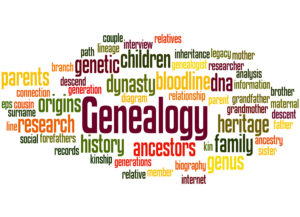
Why do we give thanks?
In her book One Thousand Gifts, Ann Voskamp says, “This is the crux of Christianity: to remember and give thanks, eucharisteo. Why? Why is remembering and giving thanks the core of the Christ-faith? Because remembering with thanks is what causes us to trust; to really believe. Re-membering, giving thanks, is what makes us a member again of the body of Christ. Re-membering, giving thanks is what puts us back together again in this hurried, broken, fragmented world.”
In Luke 17:15, one of ten lepers that is healed returns to Jesus and gives thanks.
Lets read what happens in Luke 17 verses 11-19:
11-As Jesus continued on toward Jerusalem, he reached the border between Galilee and Samaria.
12-As he entered a village there, ten lepers stood at a distance,
13-crying out, “Jesus, Master, have mercy on us!”
14-He looked at them and said, “Go show yourselves to the priests.” And as they went, their leprosy disappeared.
15-One of them, when he saw that he was healed, came back to Jesus, shouting, “Praise God, I’m healed!
16-He fell face down on the ground at Jesus’ feet, thanking him for what he had done. This man was a Samaritan.
17-Jesus asked, “Didn’t I heal ten men? Where are the other nine?
18-Does only this foreigner return to give glory to God?”
19-And Jesus said to the man, “Stand up and go. Your faith has made you well.”
I would like to think that I would be like the one man that went back to Jesus to say “Thank You”. I wonder what the other 9 men thought when they saw this man running back to Jesus? Did they see him fall to his knees and give thanks? It took extra time for this man to run back to Jesus and not to his family and loved ones from whom he had been estranged. He took that time and for that he was rewarded by Jesus. Thankfulness is sometimes time-consuming. It means we have to be aware of giving thanks to God and pause to tell him “Thank You”. Are we too busy in our days to take the time to do this? To always give thanks in all circumstances, especially the big ones like this, the curing of leprosy. But, how many times does something happen in my life in which I am grateful, but neglect to give Jesus the glory and thanks that He deserves? Probably more times than I care to admit.
Eucaristeo means thanksgiving. Within this word are the greek words: Charis, which means Grace and the word Chara, which means joy. A life of gratitude brings transformation. By coming to Jesus and falling at His feet to thank Him, the man with leprosy received something greater than physical healing, he also was saved from his sins. His nine friends were declared clean by the priest, but he was declared saved by the Son of God.
What miracles are we missing when we do not Thank God for the gifts that He bestows upon us?
What do I need to thank God for today?



